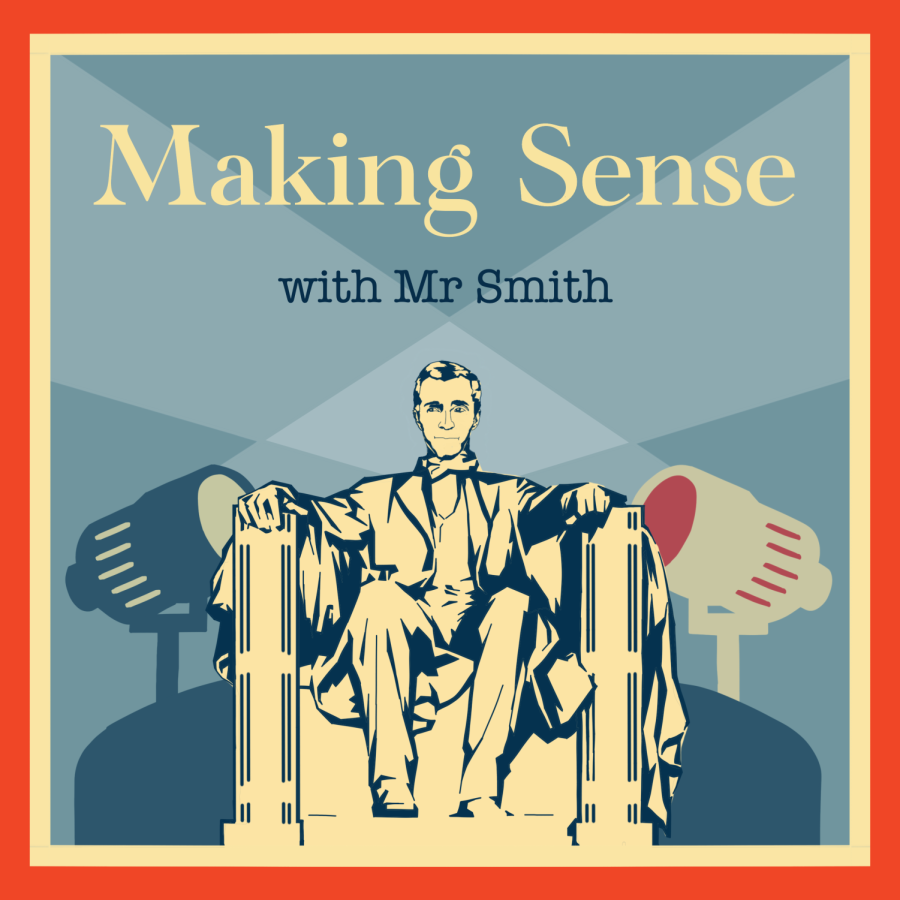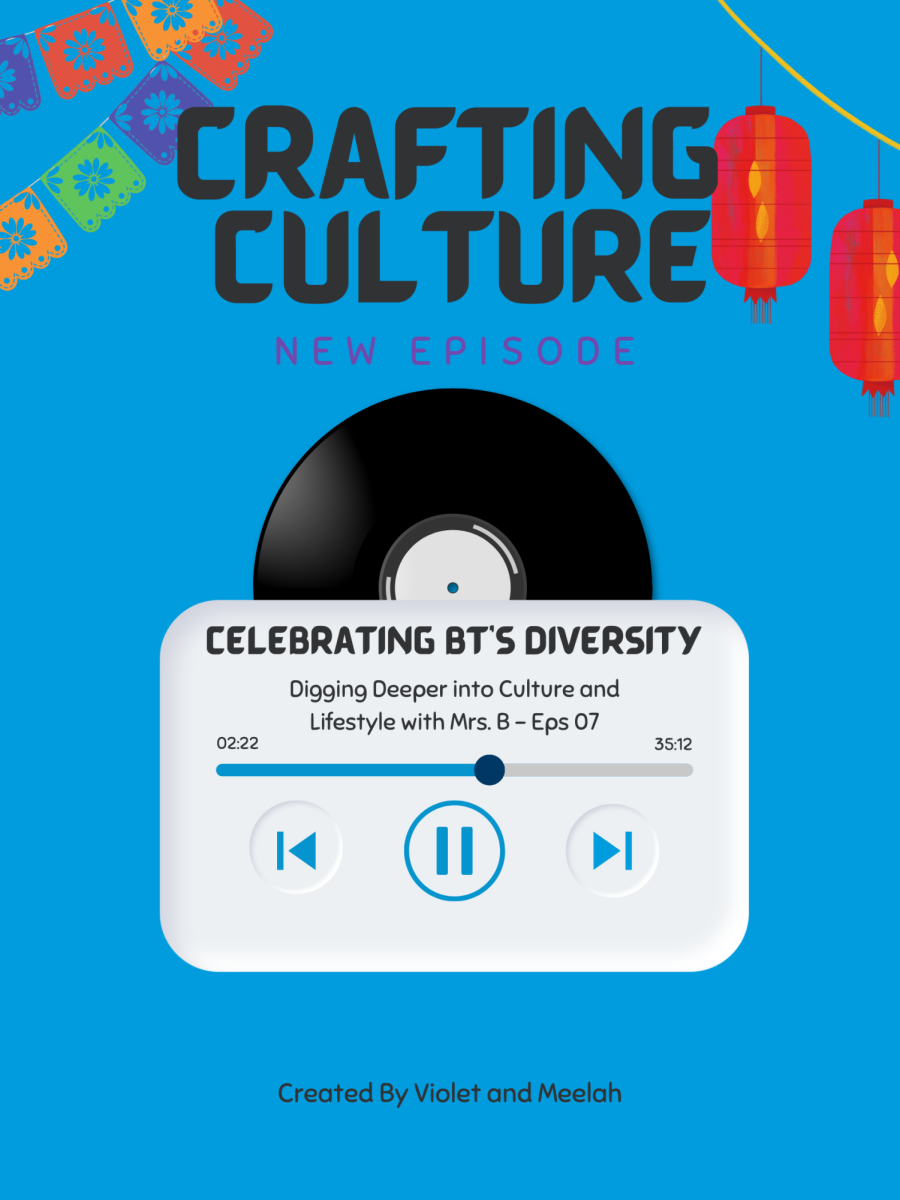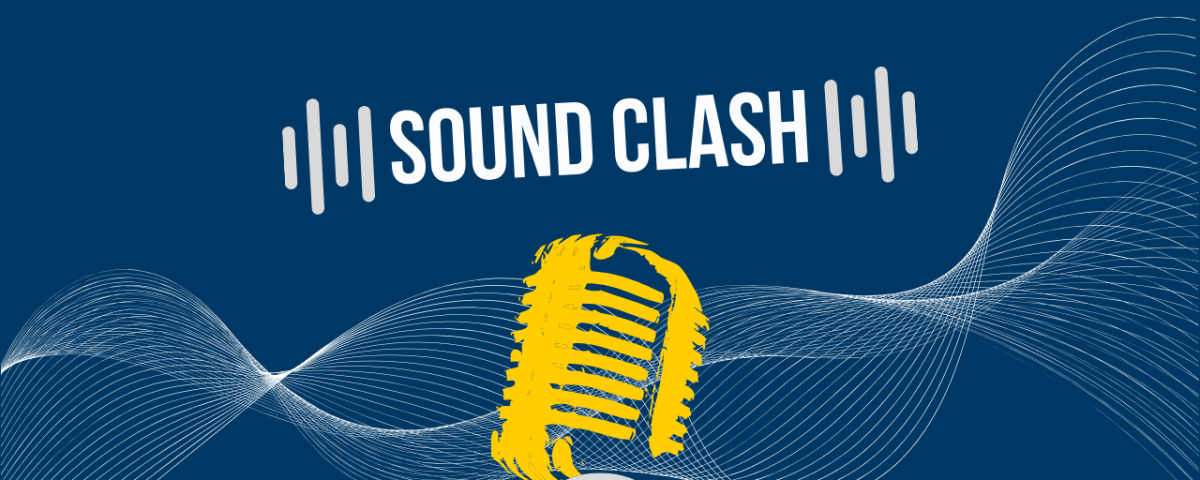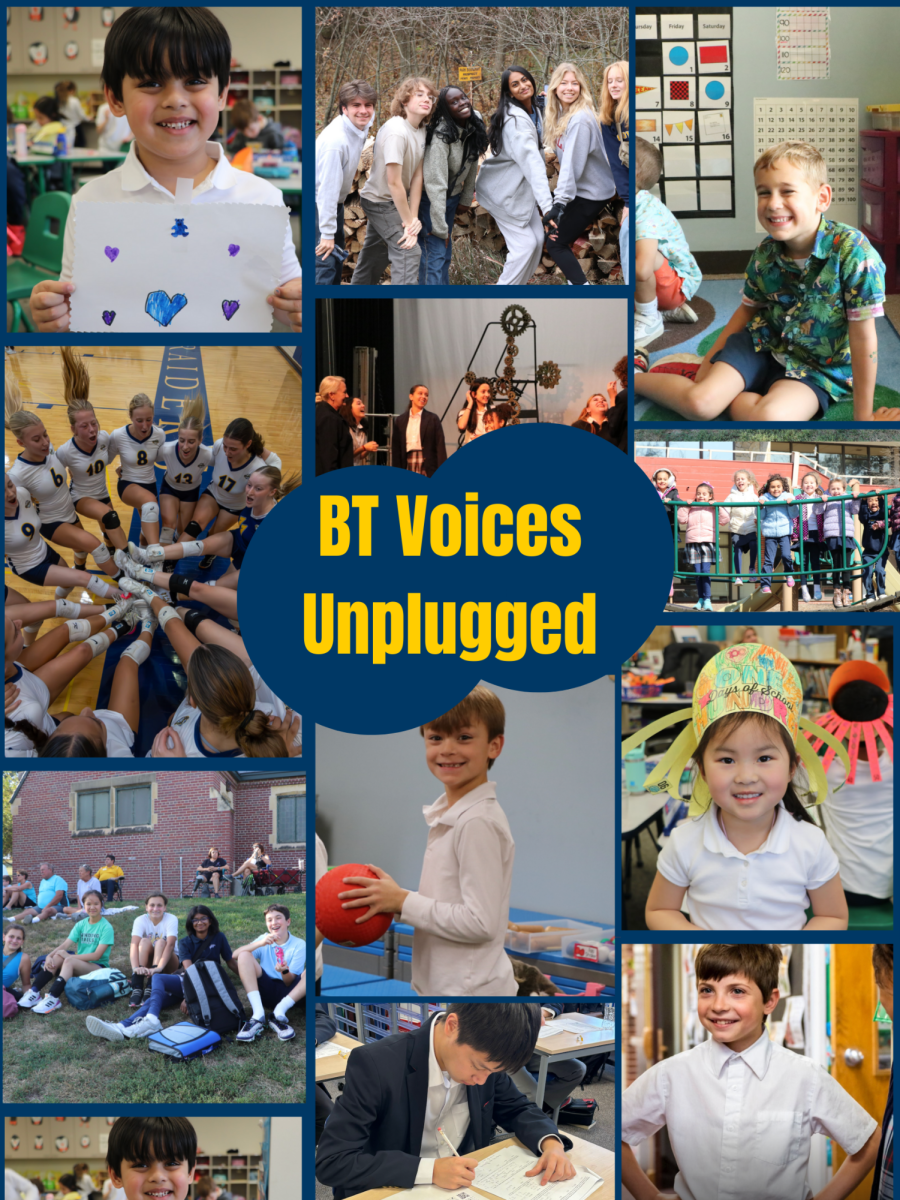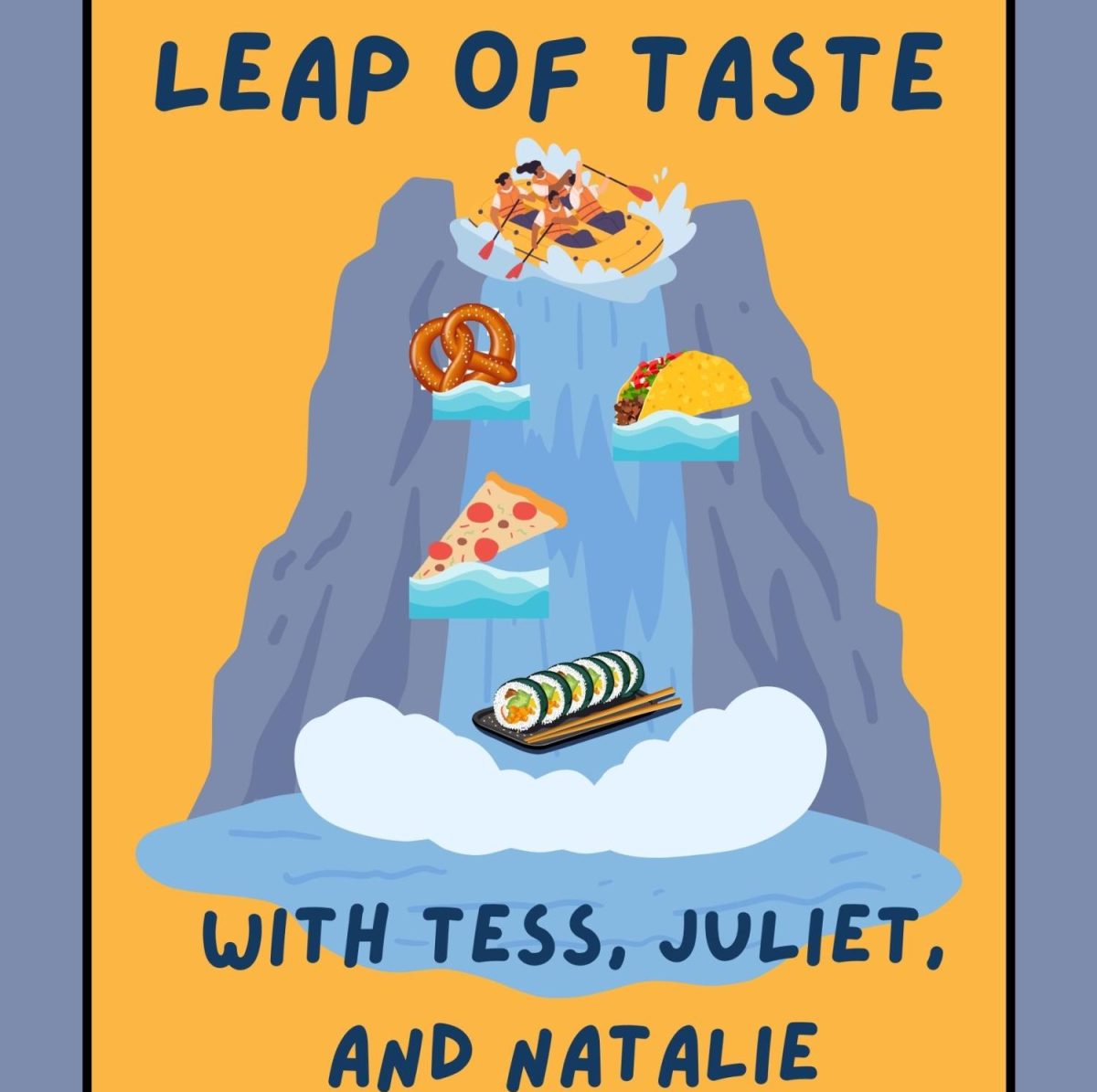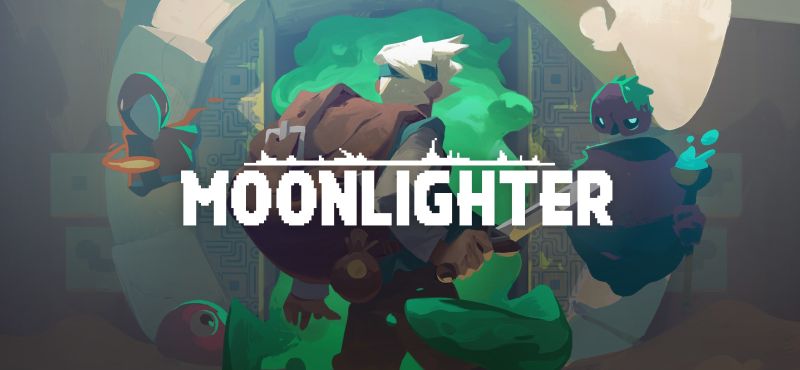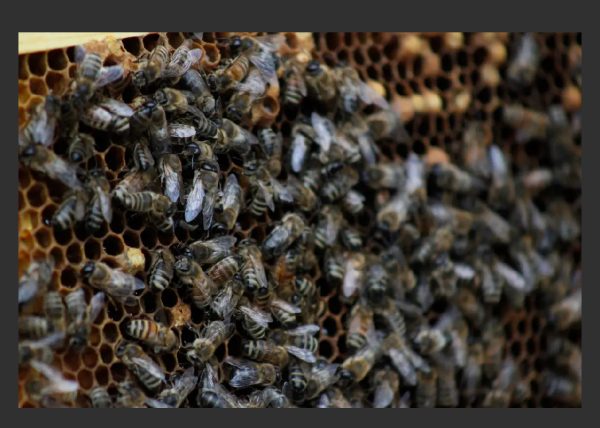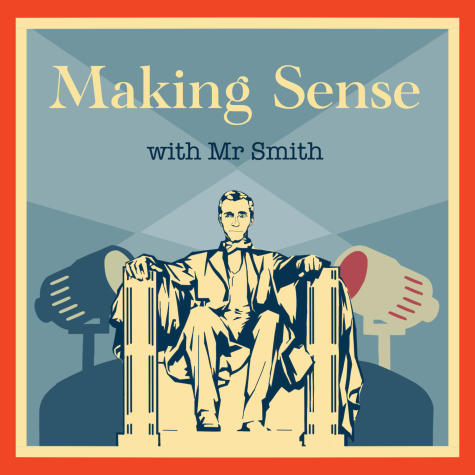ChatGPT and AI Writing: From Ekphrasis to the WGA

A common sign on the picket line at this year’s WGA strike in Hollywood.
As the school year comes to a close, so does this series on AI. However, this article will surely be the penultimate one, as it will cover the most anticipated topic yet: AI writing. Particularly, AI like ChatGPT will be examined to evaluate whether it truly is beneficial to our society. According to Brownell Talbot students, however, as well as other students around the world, AI like ChatGPT has already been integrated into almost every aspect of their school life. However, AI also has its downsides, they shared, which threaten to overshadow this new frontier.
Of course, the mere idea of an AI writing tool is enough to cause most students to jump for joy. ChatGPT is an easily navigable, human-sounding search engine just waiting to have the chance to write your paper for you! Whereas search engines like Firefox and Chrome make students search for sources and put them into their own words, ChatGPT is able to curate its response to your question in order to better serve your individual needs. Whether it’s by using ChatGPT as an idea generator, a study tool, or even as a replacement for doing work altogether, you can’t deny that it is certainly a viable option. In fact, I even made ChatGPT write me a 5 paragraph essay about the benefits of class pets, which it did in under 15 seconds. When asked to cite its sources, the bot was able to do exactly that, using in-sentence citations and making a valid works cited page.
Now, after reading that paragraph, I’m sure students are all too eager to head to ChatGPT and simply copy-paste all their assignments for an AI to do for them, while teachers are growing worried that I’m so blatantly promoting AI use. Readers of my last two articles might be confused why I suddenly switched my attitudes about AI so quickly. Perhaps the AI have already taken over this article! However, this is simply not the case, and I am about the strongest AI writing critique you can find. Why, though, if all the points I made above were true?
To put it simply, the detriments simply outweigh the benefits at this point in time. While it is true that ChatGPT was able to spit out a 5 paragraph essay in less than 15 seconds, there were some glaring issues: the writing read, well, like a robot, the citations were bad, and it was able to be detected by AI Content Detectors. All AI writing software have an “accent” of sorts that read very much like someone filling a quota for how to make an essay, since that is exactly what it is doing. Introduction? Check. Transition words? Check. It goes down its list until it deems the essay “complete,” then spits the finished product at the user. This makes for very bland, impersonal writing that is sure to get flagged by a teacher, especially if multiple students have the same ‘accent’ in their writing. Also, the citations were very much lacking. Although the in-text citations were on the whole fine, the works cited page had only one source that was actually correct. The other two sources had publication dates wrong and dead links that didn’t lead to where the AI said it would. It is very unlikely for a human to make this error, since they just have to copy and paste the link from the search bar. Undoubtedly, this is another undeniable detriment with current AI.
However, the biggest flaw of all is none other than AI detection software. Using my class pet generation from earlier, the website ‘AI Content Detector’ flagged the essay as AI-written almost immediately. Even after instructing ChatGPT to write specifically to fool these detectors, the highest rating I got was a 56% human, which barely tipped the scale in the AI’s favour. In contrast, my 9th grade ekphrasis essay got me a 94.3% human probability rating, which made me wonder why 5.7% of it read like an AI. Nonetheless, AI simply isn’t good at sounding like a human, or at least to a content detector. Unless someone is willing to put in the time to insert enough human content to get a higher rating, or can cajole ChatGPT into sounding like a freshman overloaded with ekphrasis knowledge, AI is still a long way away from being a valid method to write essays. However, some groups think otherwise.
The Writer’s Guild of America, or the WGA, went on strike on May 2nd, causing an influx of witty protest signs and terror on Twitter over shows potentially being delayed. One of the main reasons for this strike was due to the question of whether AI would be used to replace writers for shows and further decrease writers’ salaries. To combat this, writers created signs protesting this (among other unfair things in the writing industry) and started picketing. As a fellow writer (though sadly unpaid), I can sympathize with this greatly, though not only from a writer’s perspective. As a student, it is infuriating to hear my peers finish essays and homework in less than 10 minutes by using AI, whereas it takes days for me to gather sources and piece together a well-written essay. However, it does bring me pleasure knowing that my writing is personalized to my own individual voice, and not just the “voice” of an algorithm trying its best to sound human. The great thing about humanity is that we don’t need to sound human, we just do. As such, we can focus on adding our own life into the things we write, something an AI will never be able to do, as I’m sure the writers at WGA realized. Hopefully, their CEOs will understand this as well, as well as the students that currently use ChatGPT to do their work. The thing to take away from this article (and this series as a whole) is that AI should never be used to replace human thoughts and ideas. It can serve as a building block and make many aspects of our life easier, but taking away peoples’ voices and stories in order to churn out the quickest solution is not the way to go. If we do that, then people won’t be able to connect with others through art, conversation, or writing, since AI only serves to mimic humanity, not think for itself. And, at the end of the day, the AI is mimicking us because humanity is able to create amazing things, not anything else. So, the next time you find yourself in Dr. Low’s class staring down the barrel of another essay, consider picking up your pencil and writing yourself, instead of taking the AI way out.

Fruzsina Roka is a senior who has been at Brownell Talbot for three years. She joined Verbatim three years ago, but has had a presence in several other...





